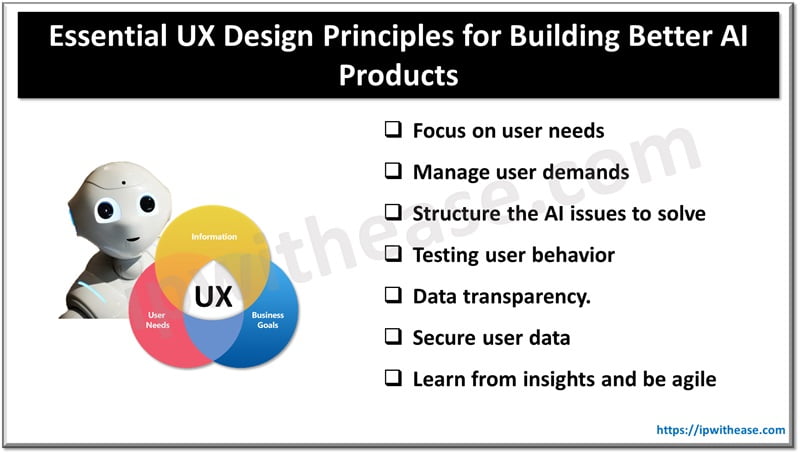Table of Contents
The introduction of AI into customer service operations is revolutionizing the way that many businesses approach their customers. Regardless of your business’s size, you will surely benefit from employing AI in your customer service channels.
In this article, we will provide an overview of the AI functions that improve customer service tools, discuss the benefits of these tools for businesses, and describe how businesses can use AI to grow more effectively. We will also discuss the challenges involved and things that businesses using AI for customer service should look out for.

AI Technologies Transforming Customer Service
AI is transforming customer service by improving customer interactions, streamlining business operations, and increasing customer loyalty. In the sections below, we will look at AI-driven tools that companies are using to improve customer service.
Chatbots and Virtual Assistants
There are AI-powered chatbots and virtual assistants that companies are programming to remarkably sophisticated degrees. These digital tools are successfully replacing many of the functions previously performed by humans. Depending on a company’s customer service priorities, chatbots can answer questions, provide detailed information, and offer suggestions to customers much more accurately than people can.
Chatbots and virtual assistants can now be personalized to recall individual customer order histories, identify customer browsing patterns, and make accurate recommendations based on personal preferences. This is making the buying experience much easier and more enjoyable for customers, and helping to improve customer satisfaction rates. Chatbots and virtual assistants can also handle large volumes of inquiries, which reduces the need for customer service staff members.
Natural Language Processing (NLP)
Natural Language Processing is an essential part of AI in customer service programs. Well-known programs such as Siri and Alexa use NLP to understand and respond to commands.
NLP works by scanning huge volumes of data and analyzing patterns in human speech. Through these analyses, NLP-driven tools are able to come up with appropriate information upon command. Customer service tools use NLP to provide customers with accurate responses to questions and help guide them in the right direction.
Machine Learning and Predictive Analytics
Machine learning is a subset of AI. Machine learning in data analysis uses predictive analytics to forecast customer needs and behavior accurately. This includes both things like customer preferences, as well as problems that people tend to encounter when using a website or other company service.
Predictive analytics is particularly good at analyzing customer sentiment. It can detect customer satisfaction levels through analyzing different types of company media, including websites, social media, and customer feedback forums. In gathering and analyzing all this information, predictive analytics helps anticipate customer behavior.
Key Benefits of AI in Customer Service
There are multiple benefits that using AI in customer service provides to both customers and businesses.
Improved Efficiency and Productivity
Using AI-driven tools in customer service functions makes a huge difference in company efficiency. AI is able to gather enormous amounts of information in very short periods of time, sort it, and analyze it for easy implementation by marketing teams. The amount of data that AI can process far exceeds human capacity.
This efficiency drastically reduces the time that companies need to spend on customer service efforts. In using chatbots, virtual assistants, and other customer service types, teams can relieve themselves of many time-consuming manual tasks and focus on the larger picture. This enables them to become much more productive and grow their businesses faster.
Personalization and Customization
Numerous studies indicate that customers are more satisfied when they feel that their individual needs are being addressed. AI can sift through personal buying histories and personalize customer service efforts to fine degrees. AI tools make suggestions that apply not only to customers’ larger demographics, but to individuals’ overall and recent buying habits. Programs can offer relevant discounts, and address customers in their preferred languages.
In analyzing data in real time, AI tools provide up-to-date responses to customer needs. There is no delay between receiving customer information and responding to inquiries. And as software-based tools are available 24 hours a day, people can get assistance whenever they seek it.
Enhanced Data Analysis and Insights
AI analytical tools work by gathering, sorting, and analyzing large datasets to determine patterns and produce insight for businesses across industries. In customer service, the results of analyses help analysts predict customers’ buying patterns, their likely future needs, and areas in which companies can make improvements in their customer service.
This enhanced analytics helps companies hone their customer service tools, and also helps them refine their long-term strategic planning. Companies save money thanks to increased efficiency and greater customer satisfaction levels.
Challenges and Considerations
For all the benefits that AI provides, there are also challenges involved that companies using these tools should take into consideration. One challenge is the risk of data breaches. When allowing digital tools to gather personal information about people, companies take the risk of using information that may be sensitive or confidential. If the information that goes against customers’ wishes gets exposed, it could cause serious reputational or legal problems for the companies that use it.
Another consideration is that digital tools always have the risk of error. When information is gathered about larger demographic trends in customer behavior, it always includes some information that might not be relevant to certain individuals. Chatbots and other tools can sometimes be wrong in their assumptions about people. Therefore, companies using these tools should be careful to monitor interactions as much as possible and take action if a program appears to be faulty.
Conclusion
AI holds great promise for improving customer service in several important areas. It can help to increase customer satisfaction, reduce workloads for companies, improve efficiency, and ultimately help companies grow their businesses more effectively. There are some areas in which companies need to be cautious. Teams using AI in their customer service operations should monitor activity carefully and be prepared to make adjustments as necessary.
ABOUT THE AUTHOR
IPwithease is aimed at sharing knowledge across varied domains like Network, Security, Virtualization, Software, Wireless, etc.



